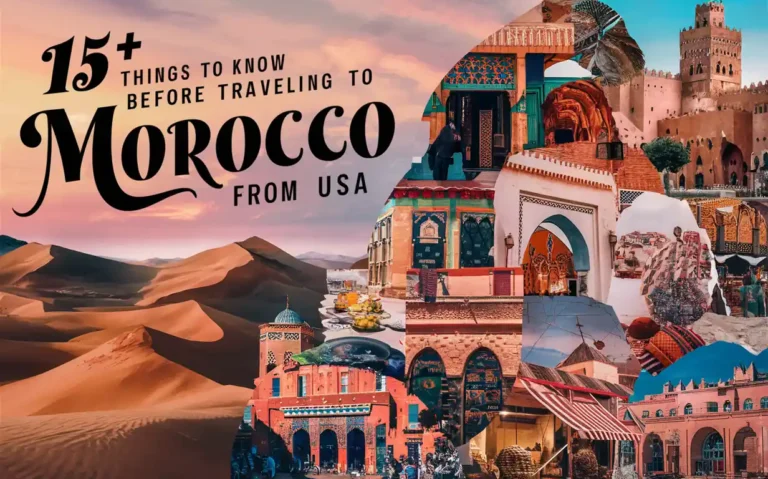
Is traveling a hobby or just a luxury? That question sparks debate in 2025 as more people find creative ways to explore the world. For some, travel feels like an occasional vacation. For others, is traveling a hobby becomes a genuine lifestyle choice—something you actively nurture, plan for, and grow with.
The shift is striking. Remote work, flexible schedules, and affordable micro-trips mean more travelers can weave short escapes into daily life. Whether it’s a weekend road trip, a long-dreamed journey abroad, or even exploring flea markets in your hometown, the pattern of repeat, intentional travel fits the very definition of a hobby.
This guide explores seven surprising reasons why travel belongs in the hobby category. Along the way, I’ll share examples, challenges, and frameworks to help you build travel into your life sustainably, without turning it into another chore.
1. What Makes Something a Hobby? (Foundations & Boundaries)
1.1. Definition & Philosophy of Hobby
Most dictionaries define a hobby as a regular activity done for enjoyment during free time. Hobbies aren’t obligations, and they’re not work—at least in their purest form. Think of painting, stamp collecting, or cooking: activities repeated for pleasure, not necessity.
Travel fits this framework more often than people assume. It can be cyclical, immersive, and personal. It may not happen daily, but even quarterly or annual adventures can count, as long as they’re pursued with genuine interest and repeat intention.
1.2. Where Travel Fits — and Where It Doesn’t
Of course, not all travel is hobby travel. Work trips, commuting, or being relocated don’t fall into the same category. That’s obligation, not joy. Similarly, if every trip is just for content or brand deals, it may feel more like a profession than a pastime.

But here’s the nuance: travel often lives in a hybrid space. Many travel bloggers and digital nomads treat exploration both as a career and a passion. It’s the mindset and intention that determine whether something feels like a hobby. If you still feel the spark—the “travel bug”—then it’s more than just work.
1.3. Why 2025 Is a Unique Moment for Travel as Hobby
This decade has redefined the meaning of leisure. Post-pandemic, people crave freedom and novelty. Remote work allows for extended stays, while the rise of affordable micro-escapes and day trips makes travel accessible even for those with limited vacation days.
At the same time, cultural awareness has shifted. More travelers prioritize slow travel, eco-friendly options, and meaningful experiences over stamp-collecting itineraries. That balance of accessibility and intentionality makes 2025 an ideal time to frame travel as a legitimate, enriching hobby.
7 Surprising Reasons Why Traveling Is a Hobby
Reason 1: Lifelong Skill & Learning Playground

Hobbies often teach you something new, and travel is no different. Every trip sharpens navigation, patience, and adaptability. When you’re traveling abroad, figuring out bus routes or bargaining in a local market becomes part of the learning curve.
Think of it like building a personal curriculum. Instead of piano lessons or woodworking, you’re developing cultural literacy, geography knowledge, and resourcefulness.
Each travel experience is a mini course in history, language, or logistics. And unlike static hobbies, the lessons change with every destination.
Reason 2: Emotional Reset & Intrinsic Reward

Travel refreshes the mind in a way few hobbies can. Whether it’s a spontaneous day trip to a coastal town or a long journey to foreign countries, the joy often comes from novelty itself. That shift pulls you out of routine and far beyond your comfort zone.
Other hobbies might provide flow states—like losing yourself in painting or music. But exploring a new city, eating local food, or watching the sunset from a mountain ridge creates its own reset button. These experiences are not just vacations; they’re recurring practices that bring emotional balance.
Reason 3: Identity & Self-Expression

Some hobbies help define who we are. People proudly call themselves gamers, cyclists, or gardeners. In the same way, many wear “traveler” as a core part of identity. Curating trips, keeping journals, or crafting a bucket list shapes self-expression.
Even within travel, the hobby takes many forms. One person may dive into food culture, while another focuses on historical sites or natural wonders. Storytelling through scrapbooks, blogs, or even friendly conversations transforms every travel experience into a creative outlet. For some, that identity becomes as defining as any long-held hobby.
Reason 4: Community & Shared Rituals

Many hobbies thrive on connection, and travel is no exception. Joining local meetups, backpacking groups, or even joining themed tours makes it a social experience. You can build friendships with a travel companion, swap tips with tour guides, or find your tribe in an online digital community.
In 2025, travel clubs and forums are booming. People set annual challenges, like visiting a new city each quarter, or meeting fellow hobbyists at cultural festivals. These shared rituals mirror the camaraderie found in sports teams or collectors’ groups—proof that travel builds belonging as much as discovery.
Reason 5: Systemic Habit & Repeatability
At its core, a hobby is something you return to again and again. Travel fits this perfectly when you build it into your lifestyle. That might mean quarterly getaways, spontaneous road trips, or planned weekend escapes.

Technology makes this repeatability easier than ever. Apps for travel planning, budget trackers, and even setting aside a travel fund in a separate account bring structure to your adventures. Treating it like other recurring hobbies—gardening, photography, or sports—turns travel into a rhythm rather than an occasional luxury.
Reason 6: Portfolio of Micro-Projects
Every trip can be a project in itself. Some travelers dive into cultural immersion by cooking local dishes or practicing new languages. Others focus on capturing perfect photos, studying architecture, or curating journals. These layered goals give each travel experience a sense of progression.
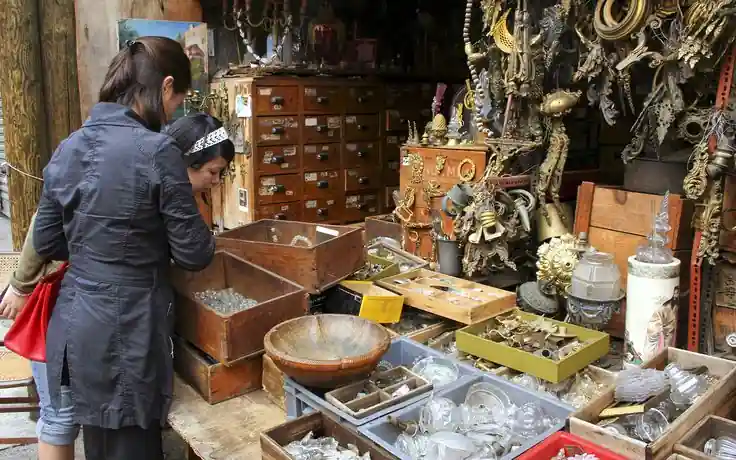
Think of travel as building a portfolio—like a scrapbook of moments, meals, or stories. One person might collect visits to Baseball Parks, another might explore Antique Shopping, Consignment Shops, or Flea Markets worldwide. The common thread is that each trip becomes a creative, repeatable project that grows over time.
Reason 7: Paradoxical Monetization (Yet Remaining Hobby)

One of the biggest debates is whether travel stops being a hobby once it earns you money. A travel blogger might write guides or share photography online, but the spark that started it all was the joy of exploring. Hobbies can evolve, and sometimes they overlap with side income.
The trick is keeping boundaries. Treat some trips as purely personal, even if you also run ads, use ad blockers, or monetize with platforms like Brainly Plus. Income may offset costs, but if the motivation remains joy, exploration, and curiosity, travel still qualifies as a hobby—just with bonus perks.
3. Counterpoints & Nuanced Objections
3.1. Cost, Time & Access Inequalities
Not everyone can afford frequent travel, which raises the argument that it’s a privilege, not a hobby. And yet, hobbies like skiing, photography, or even car collecting also require resources. The key is finding scalable approaches.
Affordable options include local Garage Sales, Consignment Shops, and even cultural events in your neighborhood. A short day trip or regional escape can be as fulfilling as international flights. Setting up a high yield savings account or dedicated travel fund helps make the hobby sustainable without straining budgets.
3.2. Burnout, Overextension & “Hobby as Obligation”
Another risk is turning travel into a pressure cooker. When every weekend must be a getaway, it can lose its spark. Social media amplifies this, creating comparisons that make people feel they’re not doing enough.
Hobbies should release stress, not add to it. Setting boundaries—like skipping a trip during scheduled maintenance at work, or recognizing when life is already under going changes—protects the joy of the hobby. Travel should feel restorative, not like another task on your list.
3.3. Sustainability & Ethical Tension
A growing objection is whether travel can truly be ethical as a hobby. Concerns around carbon emissions, overtourism, and cultural exploitation are real. Visiting fragile ecosystems or crowded cities without awareness can harm more than help.
But like any hobby, there are responsible ways to engage. Many travelers now follow travel advisories to make informed decisions, choose slow travel, and support local businesses. Participating in a Conservation Program while abroad, or donating to community initiatives, transforms the act of travel into something regenerative rather than extractive.
3.4. Skepticism: “Travel is Privilege / Escapism / Not for Everyone”
Some critics argue travel is just escapism for the privileged. That viewpoint deserves empathy because financial and personal barriers do exist. But this argument overlooks the broader definition of hobby.
Hobbies aren’t measured by distance traveled but by intent and repeatability. Reading, gardening, or sports all scale to your means. Likewise, travel can mean exploring ancient Greek ruins in Europe or simply rediscovering your hometown’s hidden gems. Even local experiences—like Garage Sales or Flea Markets—fit within the spirit of curious exploration.
4. How to Turn Travel Into a Sustainable Hobby (Practice & Rituals)

4.1. Mindset & Identity Work
The first step is deciding to treat travel as a part of your identity, just like photography or gardening. Saying “I’m someone who loves micro-trips” or “I’m building my own travel portfolio” gives you permission to prioritize it.
Start small—write down a bucket list, even if it only includes nearby spots. Journaling your travel experiences or creating a vision board keeps the spark alive. Many find that documenting their goals helps sustain motivation and reinforces the mindset of travel as a genuine hobby.
4.2. Habit Design & Planning Systems
Hobbies thrive when you make space for them. Block out weekends for a quick road escape or a regional flight, the same way you’d schedule gym sessions. Even a day trip can feel like a refreshing hobby ritual.
Financial planning matters too. Setting aside a travel fund is smart, but pairing it with a high yield savings account helps that fund grow faster. For frequent travelers, using a travel credit card with rewards makes the hobby more affordable long term. The structure creates consistency, which is what defines a hobby.
4.3. Skill & Project Layering
Hobbies get more engaging when layered with challenges or side projects. Travel is no different. Some focus on cultural immersion, while others set goals like hiking new trails or visiting ancient Greek ruins across Europe.
This is also where careers and hobbies intersect. Many Software Engineers, Digital Marketers, Website Developers, and even Online English Teachers embrace travel because remote working and flexible schedules allow them to explore while still earning. A digital nomad lifestyle doesn’t mean travel can’t also be a hobby—it just becomes a more integrated part of life.
4.4. Community & Accountability
Hobbies stick when you share them. Joining a travel club or digital forum makes the journey feel less solitary. Whether you’re planning a group hike or connecting with other expats in a coliving complex, accountability keeps you inspired.
Online platforms have created entire ecosystems where travelers swap itineraries, recommend tour guides, or share notes on internet speeds for working abroad. Being part of this global circle transforms travel from a personal passion into a shared, collective hobby.
4.5. Reflection & Cataloging
Like stamp collecting or scrapbooking, travel shines when you document it. Keeping journals, designing maps, or creating digital photo albums ensures each travel experience leaves a permanent mark. Even casual reflections—like rating a city’s markets or sharing impressions of TV shows filmed there—become part of your hobby archive.
Many treat travel as a lifelong project. One person might track every Formula 1 race they’ve attended worldwide. Another might keep a log of cultural festivals. The process of cataloging creates continuity, making travel feel like a structured hobby rather than random escapes.
5. Profiles & Stories: Real Hobby Travelers
Case Study 1: The Young Professional
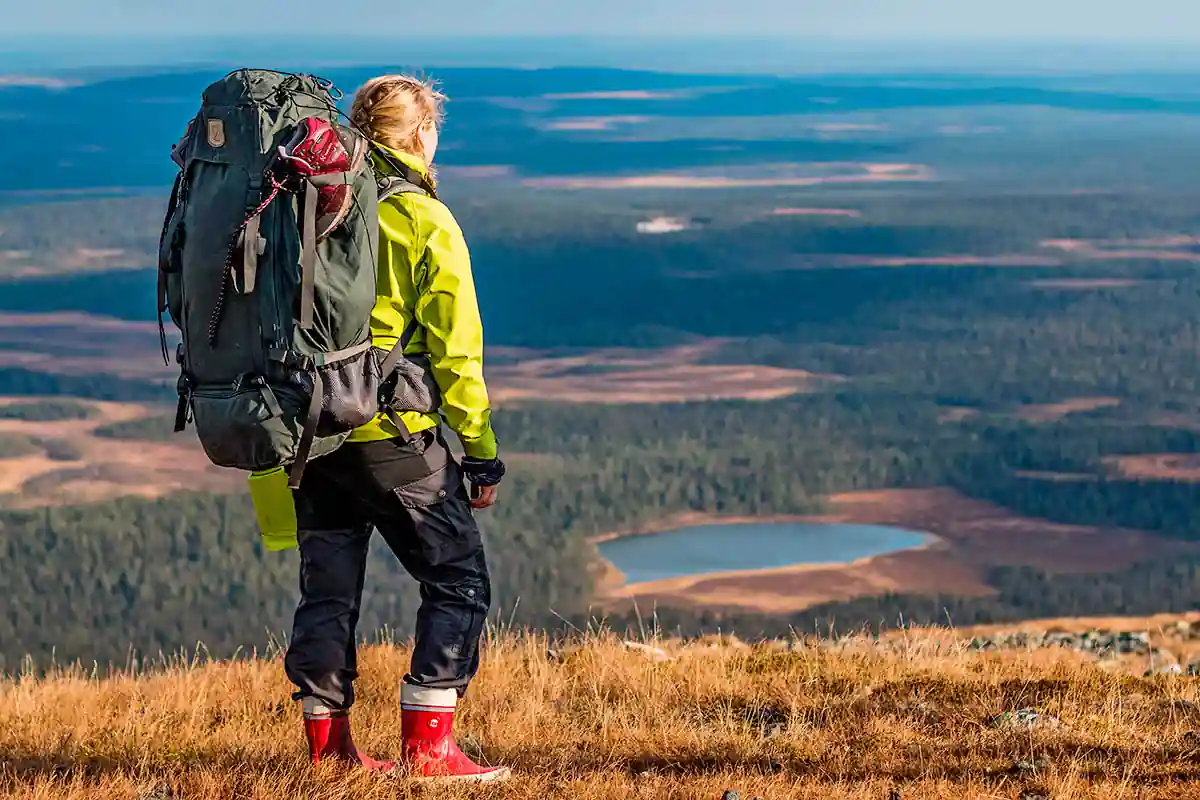
Take Anna, a civil engineer in her late 20s. Her career demands precision, but her weekends belong to adventure. She schedules quarterly escapes, often short city breaks. Once, she flew to New Zealand just to trek the Tongariro Alpine Crossing, where she learned about Captain Cook’s journeys along the coast.
Despite a demanding full time job, Anna balances career with passion. She treats every trip as a hobby project—whether it’s chasing waterfalls, exploring historical sites, or comparing global food culture.
Case Study 2: The Digital Nomad
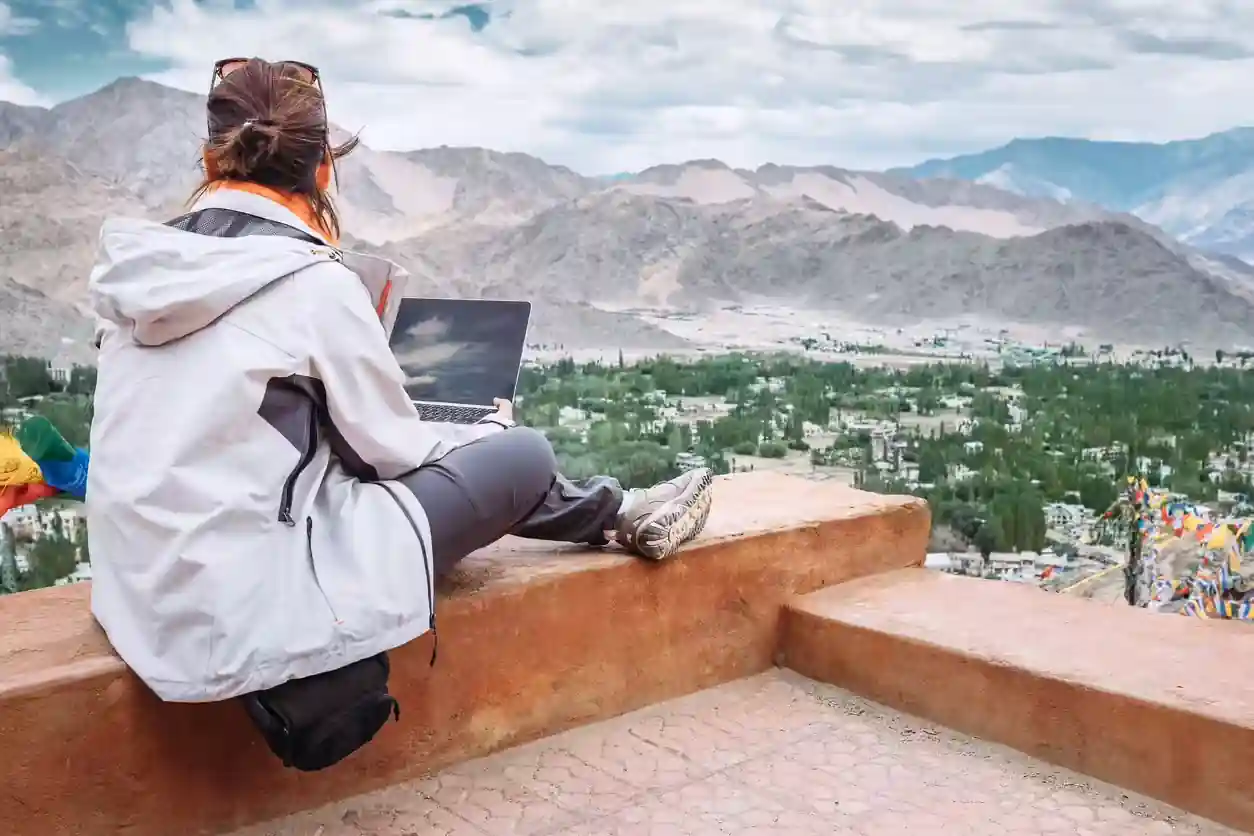
Then there’s Marco, a freelance Website Developer who thrives on mobility. He built his life around the digital nomad lifestyle, but he still treats some trips as pure hobby, separate from work. In Bali, he joined a Conservation Program, while in Greece, he visited ancient Greek ruins simply for joy.
Staying connected matters for him—he often evaluates internet speeds before booking accommodation. Yet Marco emphasizes boundaries, making sure not every trip becomes work-related. His story shows that travel can be both career-enabling and hobby-sustaining.
Case Study 3: The Retiree Explorer

Finally, meet John, a retiree and lifelong fan of The Amazing Race. Travel became his post-career passion. He enjoys Antique Shopping in European towns, visiting Flea Markets, and following Formula 1 Grand Prix events across Asia.
For John, travel is about variety. From local Garage Sales to grand adventures, every outing counts. He treats his scrapbook as a time capsule, blending travel statistics (flights taken, countries visited) with stories and photos. His hobby is less about bucket lists and more about savoring the journey.
6. Measuring Progress & Impact (Metrics for Hobby Travel)
Treating travel as a hobby means you can measure growth the same way you would with painting, fitness, or collecting. Some travelers love setting clear benchmarks, while others prefer looser reflections. Either way, keeping track helps sustain momentum.
6.1. Frequency Metrics
Count the number of adventures you take each year. This doesn’t have to mean flights across the globe—short escapes like local hikes or flea markets count. Some hobbyists even set goals like one trip per quarter.
Think of it like a stamp collector filling pages in an album. Each journey adds a new “stamp” to your portfolio. Over time, your scrapbook becomes evidence of dedication to your craft.
6.2. Depth Metrics
It’s not only about how often you go but how deeply you engage. Spending a week exploring historical sites in Italy provides more cultural weight than ticking five cities in three days. Slow, intentional travel builds meaning.
Try layering projects into your trips. For example, pair a visit to New Zealand with a personal challenge like Bungee Jumping in Queenstown. These depth-focused markers make every travel experience more rewarding and memorable.
6.3. Personal Impact Metrics
Some progress is inward. Journaling reflections, noting emotional resets, or simply seeing how travel relieves stress are valid markers. A Power Bank full of captured photos can be as valuable as a shelf of souvenirs.
Others love raw data—tracking miles, countries, or nights away. Those who enjoy numbers might keep spreadsheets or use apps that track travel statistics. For digital planners, a “Travel Hobby Dashboard” even works like a Maintenance Mode log—keeping your hobby system running smoothly.
6.4. Self-Assessment Table: Are You Already a Travel Hobbyist?
| Hobby Travel Metric | Beginner Example | Intermediate Example | Advanced Example |
|---|---|---|---|
| Frequency | 1–2 trips per year | 4–6 trips per year | Monthly micro-trips + annual big journey |
| Depth | Day tours | Immersive weekends in nearby cities | Multi-week stays + slow travel focus |
| Personal Projects | Scrapbook of tickets | Blogging, photo albums | Collecting themes (e.g., Formula 1 tracks, TV shows filming sites) |
| Cultural Immersion | Trying local food | Guided visits + language basics | Living with locals, Conservation Programs |
| Reflection | Occasional journaling | Organized trip logs | Complete portfolio with maps + stats |
This table helps you gauge where you stand. Like any hobby, travel grows with time, effort, and creativity.
7. Staying Grounded: Avoiding Pitfalls & Preserving Joy
7.1. Avoiding Overcommitment
It’s tempting to book trip after trip, but too much can backfire. Travel should complement life, not overwhelm it. Even those with full time jobs need rest weekends or simple hobbies at home. A short pause makes the next adventure more meaningful.
Micro-breaks matter. In New Zealand, for example, locals are masters of balance—taking quick getaways to lakes or mountains without burning out. This rhythm helps prevent hobby travel from becoming a checklist.
7.2. Boundaries with Monetization
For travelers who share content or dabble in side income, there’s a fine line between passion and pressure. If every trip becomes about creating deliverables, the fun fades fast. Setting clear rules—like one trip per year reserved purely for yourself—can keep the spark alive.
Even Captain Cook faced this paradox centuries ago. His voyages were both duty and exploration, yet the spirit of discovery fueled him. Modern travelers can learn from that balance: not every journey has to serve an audience or algorithm.
7.3. Mindful & Responsible Travel
Responsibility is central to keeping travel joyful. That means respecting local norms, supporting community businesses, and paying attention to travel advisories. When traveling through sensitive environments, lean into cultural immersion rather than quick consumption.
A good example is joining local projects or guided conservation tours. In New Zealand, visitors often pair activities like Bungee Jumping with environmental education, making sure thrill-seeking is balanced by responsibility. This approach ensures hobby travel stays aligned with sustainable values.
7.4. Dealing with Disappointment & Unpredictability
Even the best-planned adventures encounter setbacks—weather delays, canceled flights, or strikes. Hobbies should bring joy, not stress. Treat these moments as part of the journey.
If a destination is closed for scheduled maintenance or your plan is under going changes, pivot. Explore local travel destinations, visit a museum, or strike up conversations with locals. These unplanned detours often become the most memorable parts of a travel experience.
8. Practical Toolkit & Resources (Appendix Style)
Turning travel into a sustainable hobby often requires tools and rituals. Like any passion—whether it’s photography, gardening, or even stamp collecting—you’ll find gear and systems that make the process smoother. Here’s a starter kit for hobby travelers.
8.1. Essential Gear
- Power Bank – A must-have for long days of exploration or spontaneous day trips. Keeping your devices charged means you can capture photos, navigate maps, or binge your favorite TV shows while waiting at airports.
- Travel Journal – Helps with reflection and cataloging your travel experiences.
- Lightweight Backpack – Practical for flea markets, hiking trails, or local city walks.
- Compact Camera – For travelers who want more than just smartphone snaps.
8.2. Digital Tools
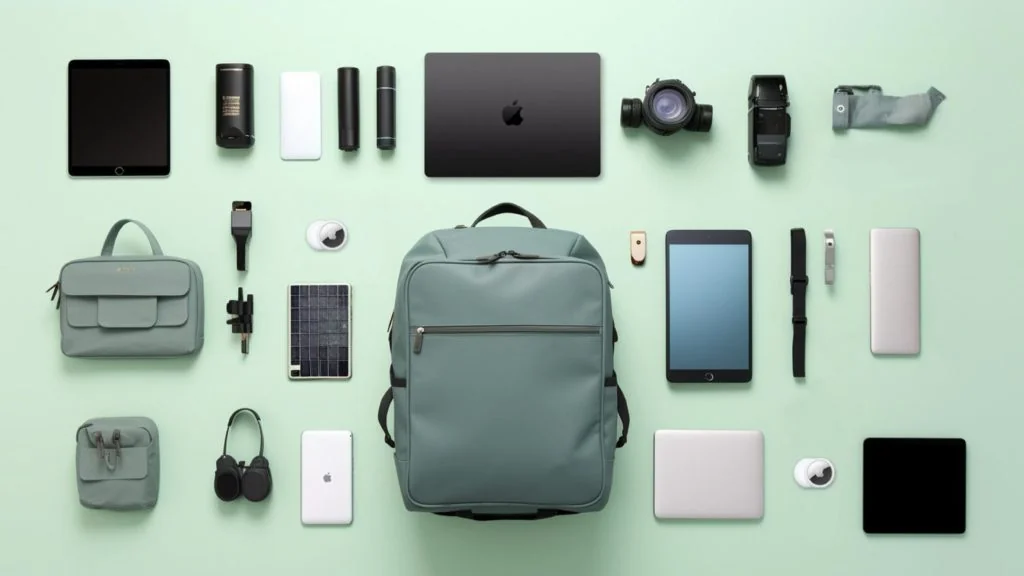
- Ad blockers – Handy for browsing booking sites or researching without distractions. They can also protect your devices when connecting to unfamiliar Wi-Fi abroad.
- Budget Trackers – Apps linked to a high yield savings account or travel fund let you monitor costs and save automatically.
- Cloud Storage – Perfect for backing up trip photos or keeping copies of travel documents.
8.3. Systems & Planning Resources
- Maintenance Mode Apps – Think of them as downtime logs. When you need to pause, reset, or simply plan the next leg, these digital planners keep your “travel hobby engine” well-maintained.
- Local Inspiration Sources – Check travel advisories, museum listings, and cultural calendars. You don’t always need foreign countries; nearby travel destinations can provide just as much joy.
- Inspiration from Others – Shows like The Amazing Race highlight global exploration, while online threads (like is traveling a hobby reddit) remind us how many people see travel as both passion and pastime.
8.4. Skill Builders
- Language Apps – A fun way to deepen cultural immersion before and during trips.
- Photography & Editing Courses – Perfect if you want to turn each journey into a creative project.
- Scavenger Hunt Challenges – From Antique Shopping in Paris to Garage Sales in small U.S. towns, setting personal quests gives travel structure, much like other hobbies.
My Final Words
So, is traveling a hobby in 2025? The answer is yes—with a few nuances. We’ve seen how travel fits the classic definition of a hobby: it’s repeatable, enriching, and driven by personal joy. From building skills and fostering identity to creating community, projects, and balance, travel offers everything hobbies are meant to provide.
Of course, challenges exist—cost, time, sustainability—but these don’t erase its hobby value. Instead, they push us toward creative solutions: shorter trips, deeper cultural immersion, smarter savings with a travel fund, or exploring travel destinations closer to home.
The beauty of travel as a hobby lies in flexibility. For some, it’s ticking off bucket list items across continents. For others, it’s Antique Shopping in small towns, watching Formula 1 races abroad, or volunteering in a Conservation Program. What matters is the rhythm, curiosity, and joy it brings.
My invitation to you: treat your next trip—big or small—as a hobby project. Journal it, savor it, reflect on it. Whether you’re planning your first micro-trip or building toward your 50th stamp in your “travel album,” remember the essence: travel isn’t just movement. It’s a passion, a practice, and, yes, a hobby worth cultivating in 2025 and beyond.
Frequently Asked Questions
1. Can traveling really be a hobby if I travel only once a year?
Yes. Even if you take just one trip, it can still be a hobby—like gardening only in spring. The key is the intent, repetition over time, and the joy you draw from the travel experience.
2. Is travel as a hobby different from vacationing?
Yes. A vacation is often about rest, while hobby travel has curiosity and growth built in. Many treat trips like mini-projects, from cultural deep dives to Antique Shopping or exploring historical sites.
3. What if I don’t like planning — can travel still be my hobby?
Absolutely. Some travelers thrive on spontaneous adventures. You don’t need detailed travel planning to enjoy the ride. Even casual escapes count.
4. Does monetizing travel ruin the hobby nature?
Not necessarily. A travel blogger or digital nomad may earn from trips, but as long as the spark remains, the hobby survives. It’s about balance—some journeys purely for fun, others for work.
5. How much money or time is reasonable to treat it as a hobby?
It varies. Some people save through a high yield savings account, while others take short, low-cost road trips. Think of it like any other pastime—it doesn’t have to consume all your time or funds.
6. What about people who can’t travel far — can local travel count?
Yes. Exploring nearby flea markets, parks, or even garage sales fits the hobby mindset. Travel doesn’t always mean foreign countries—it’s about curiosity wherever you are.
7. Is travel a hobby or lifestyle for digital nomads?
For some, it’s both. The digital nomad lifestyle mixes work and play. Even with remote work, many keep a clear line between career-driven trips and hobby escapes.
8. How do you stay motivated or funded for travel over time?
Use systems. Dedicate a travel fund, set achievable goals, and draw inspiration from others. Online threads like travelling as a hobby essay or is traveling a hobby reddit show you’re part of a bigger community of explorers.
9. Is reading a hobby? Is driving a hobby? Is shopping a hobby?
Yes, all three can be hobbies—just like travel. They share the same definition: enjoyable, repeatable, and non-obligatory. These comparisons show why asking is traveling an activity or is traveling an interest has a simple answer: yes, it can be both.
10. Is traveling a hobby in 2025? What about 2026?
In 2025, more people than ever treat travel as a structured passion thanks to remote working, flexible jobs, and affordable micro-trips. Looking ahead, is traveling a hobby 2026 will likely grow stronger as digital tools, coliving complexes, and supportive digital communities make it easier to sustain.

